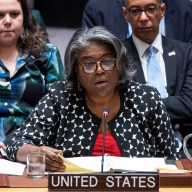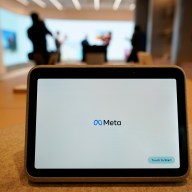Through most of his life, Marlon Brando was as acclaimed as he was perceived as eccentric, if not difficult, if not perhaps out of his mind — a reclusive and reluctant genius, eventually wasting his copious talents. That’s not how Rebecca Brando, one of his 16 children, saw him. She knew a loving, selfless father and a radical pioneer, who willing to help his fellow man as he was to prank them. That side — articulate, thoughtful, restless, funny — is on display in “Listen to Me Marlon,” a new documentary that uses never-made-public audio recordings he made to let the actor tell his own story. In fact he’s the only one who says anything about Brando; it has no interviews, and no talking heads, apart from an eerie digitized version of his actual head Brando made in the 1980s. The film doesn’t just set certain records straight, but it allows many to see a new side of him. “I’m just relieved that it shows my father as a person and not just this superstar,” Rebecca says of the film, directed by Stevan Riley. In the past, Rebecca wound often find people assumed the worst about her father, to her face. “I would go over to friends’ house and the parents immediately wanted to see me and talk to me, about his eight issues or tell me, ‘Your father’s not very pleasant on sets.’ They weren’t sensitive that, hey, he’s my father. To them it was just some story they saw in the newspaper.’” RELATED: Our review of “Listen to Me Marlon,” a new, radical look at Marlon Brando Besides, Rebecca sees the line about him as argumentative and disruptive on sets differently. “He saw something more in the script, that you could do more with it. With ‘Mutiny on the Bounty,’ there was never even a finished script. He helped finish it. ‘Apocalypse Now,’ he changed the ending and made it that much better. And it took time. Those things do take time.” “Listen to Me Marlon” also sheds a sympathetic light on his political actions, which were sometimes lauded (his work with the Civil Rights movement) and sometimes belittled (his having Native American activist Sacheen Littlefeather accept his “Godfather” Oscar). “He always had great ideas to make things better, not just for movies but in people’s personal lives,” Rebecca says. He worked with UNICEF and stood with Martin Luther King Jr. After Bobby Hutton was killed by police, Brando spoke at his funeral. “The Panthers trusted him, because they believed his sincerity. My dad would do unprecedented things like that. He was one of the first white men to stand up for people who were vulnerable and oppressed. His actions during that time drew the ire of the South. His latest film — “Countess from Hong Kong,” which found the Method actor stumbling his way through Charlie Chaplin’s swan song — was banned in certain states. “He didn’t care,” Rebecca says. “He wanted to be remembered as more than an actor. He wanted to be remembered as somebody who could make great changes.” Later on, following a nine-year stint away from movies, he made “A Dry White Season,” concerning Apartheid. He donated his salary an anti-Apartheid foundation.
That was one of the few films Brando made in his latter years that he passionately cared about. At that point he tended to goof his way through paycheck roles. “I did get the feeling that he didn’t care for acting,” Rebecca says. “He didn’t want any of his kids to do it. It was taboo to talk about his career or acting.” Brando even found himself detached from the industry. Rebecca remembers a time when he received an offer for the 1995 film “Don Juan DeMarco.” “He asked me, ‘Who is this person, Johnny Depp?’ I said, ‘Are you kidding me?’” she recalls. The two wound becoming such good friends Brando wanted to adopt him. Depp even cast Brando in “The Brave One,” the only film to date that he has directed. RELATED: “Best of Enemies” looks at the famous debates between Gore Vidal and William F. Buckley “Don Juan DeMarco” is one of Rebecca’s favorite of her dad’s films, in part because it’s so like him. “He plays himself,” she says. “He’s very fatherly in that movie. His gestures, his mannerisms, his delivery — it’s all him.” (She also cites 1966’s “The Chase” — directed by Arthur Penn and once perceived as a disaster, and since reclaimed — as a favorite, along with “A Streetcar Named Desire.”) “Don Juan” doesn’t entirely capture his sense of humor, or his love of pranks. She recalls him joking away at the dinner table. “We’d be sitting around, eating Chinese food. He’d be having his noodles and he’d sneeze and have the noodles come out of his nose,” she says. His favorite tool was whoopee cushions. “He would have them planted around the house, wherever you’d sit. If you were a guest, forget about it. It’s one way he would break the ice. It’s how he broke the ice with Johnny Depp.” The light side went hand-in-hand with his very serious side. “Even after ‘Streetcar Named Desire’ he toyed with becoming a minister,” Rebecca explains. “He was so interested in the human condition. That’s what grounded him. He wanted to get away from the attention in Hollywood, people pampering you on set. He wanted to get involved. He really believed in becoming your neighbor’s keeper.”
Rebecca Brando on Marlon Brando, his activism and his love of whoppee cushions

Getty Images
Follow Matt Prigge on Twitter @mattprigge


















